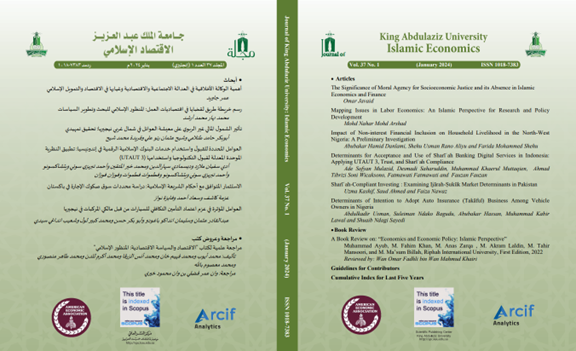The Significance of Moral Agency for Socioeconomic Justice and its Absence in Islamic Economics and Finance
محتوى المقالة الرئيسي
الملخص
The paper attempts to build a case for the moral agency of individuals operating within organic social networks – in contrast to the impersonal nature of financial institutions – as a necessary medium for practicing Islamic economic principles, for the goal of achieving socioeconomic justice in society. Through comparative analysis, the paper argues that the modern institutional framework due to its impersonal nature, capitalist orientation, agency cost, and socially disintegrative nature is not a suitable medium for advancing the agenda of Islamic economics. A market environment where individuals exercise their moral agency to the fullest is perhaps necessary. To make this argument, the paper looks at the history of Muslim bazaars and the norms in Muslim business communities in the contemporary world to explore the significance of the personal agency of morally conscious and pious individuals. The individual traders or investors would operate within their organic social networks while exercising socioeconomic justice among their stakeholders. To achieve the desired socioeconomic goals sought through the implementation of Islamic economic principles, a culture of trust and mutual support needs to be cultivated (or preserved where it already exists) between individual traders and investors in any market. This is possible only when the traders or investors can fully exercise their moral agency, have concern for each other and voluntarily demonstrate trustworthiness. In absence of such a culture, the paper argues, it would be difficult to come close to the satisfactory implementation of the principles of Islamic economics in marketplaces, let alone the achievement of the desired socioeconomic goals.

